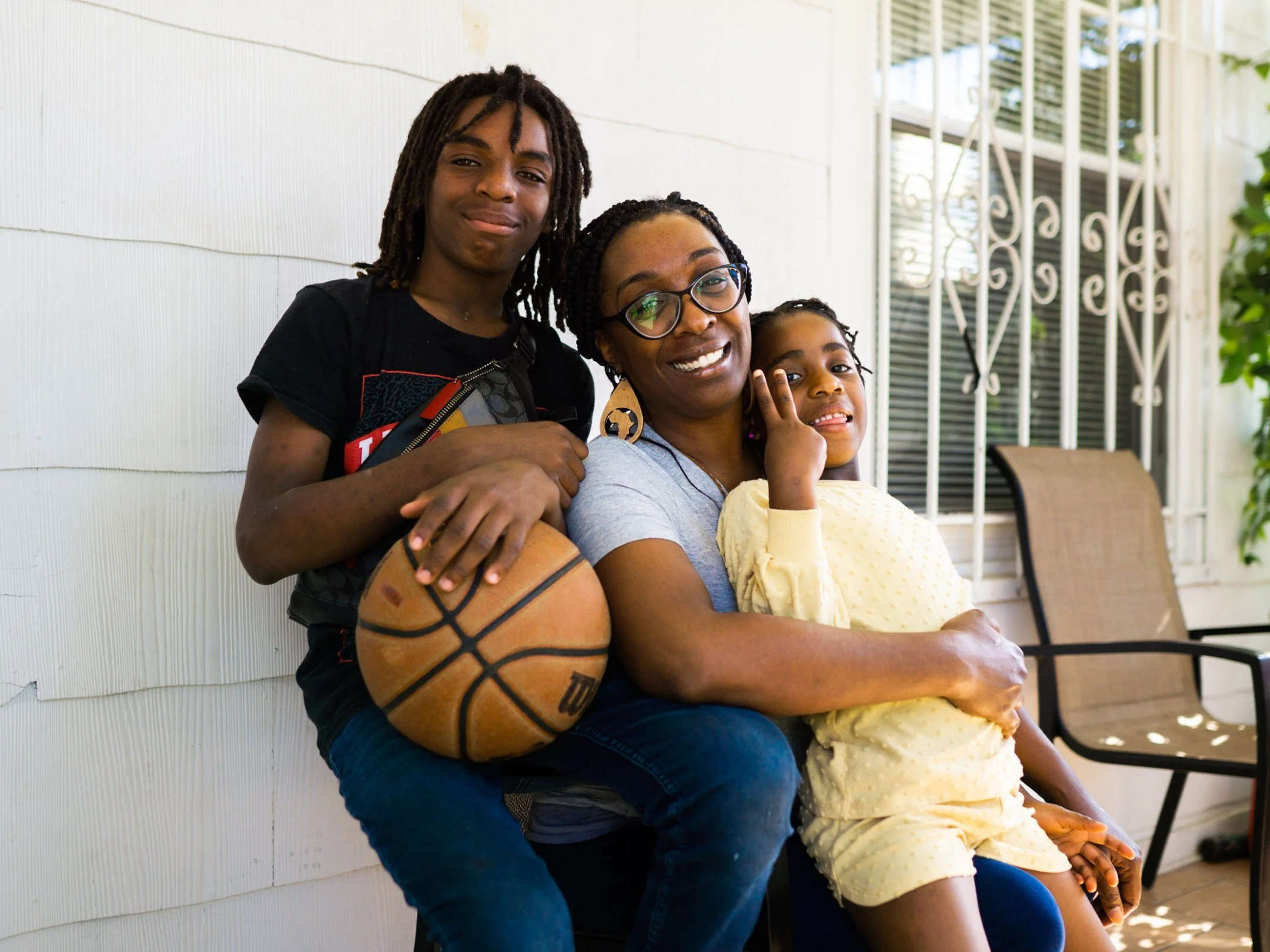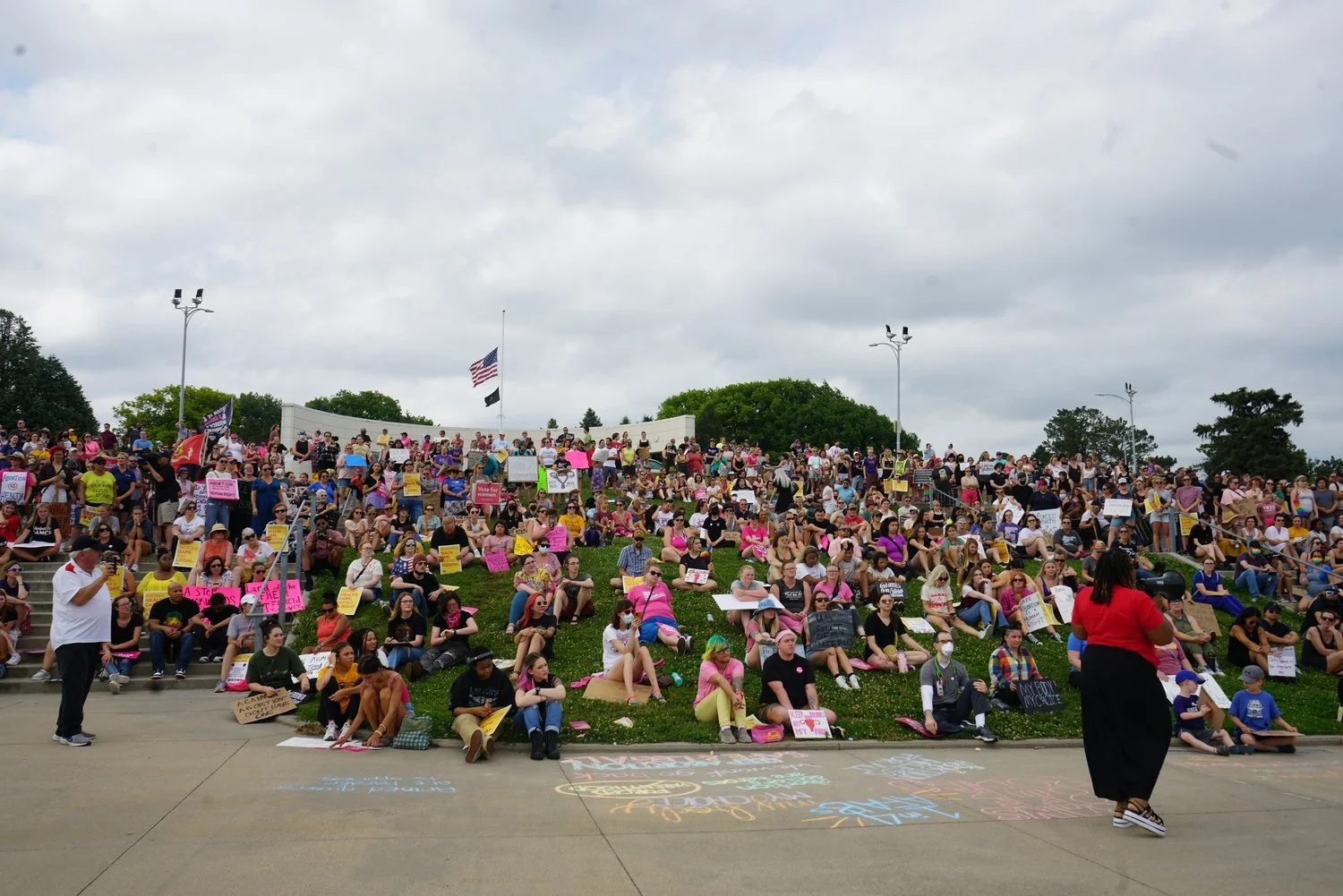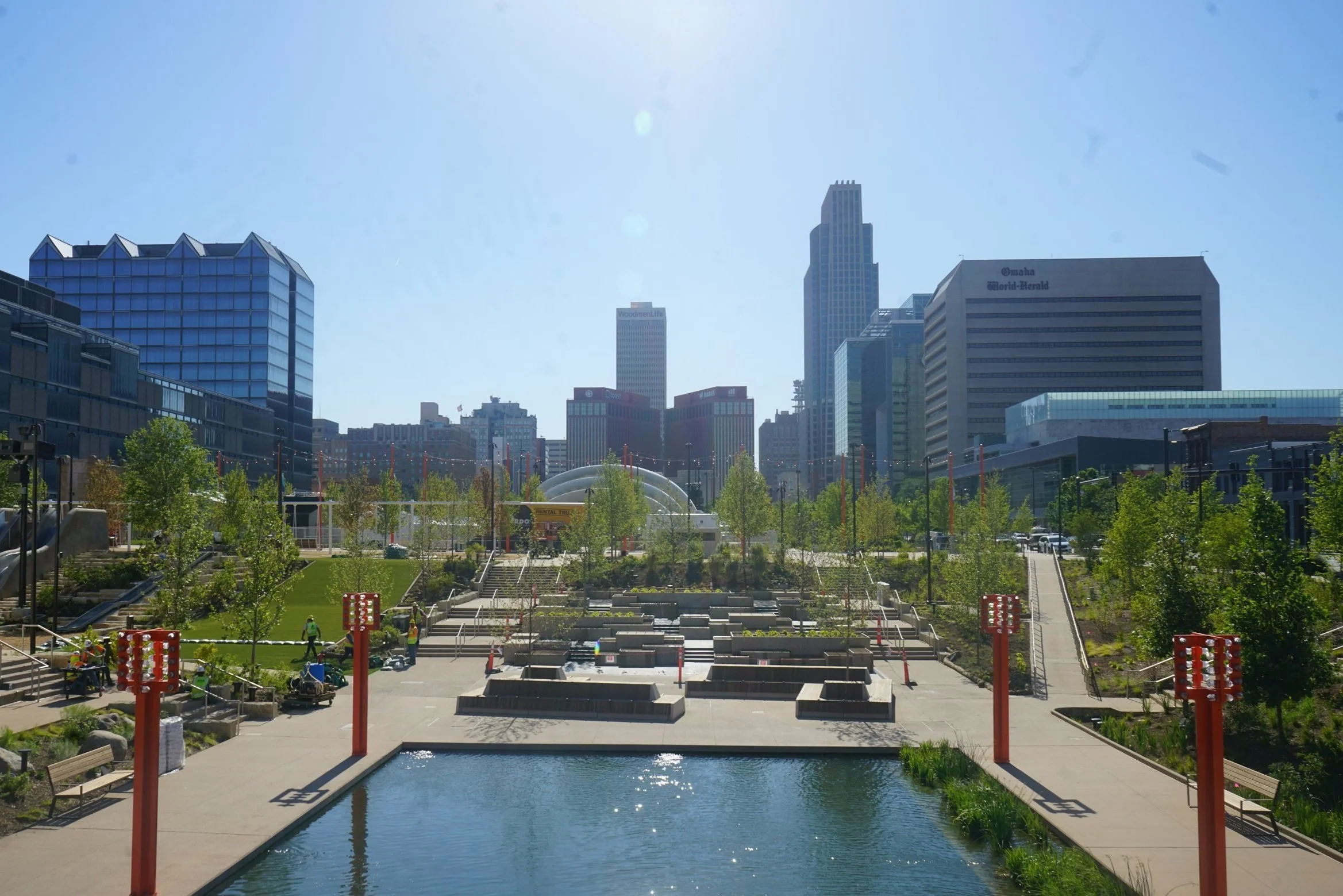Protecting Black Women in Nebraska in a Post-Roe World
Ashlei Spivey, founder of I Be Black Girl, addresses a crowd of 1,500 people at Memorial Park in Omaha on the day Roe v. Wade was overturned. Photo credit: Kietryn Zychal/ NOISE
By Elle Love
On June 24, the Supreme Court of the United States overturned Roe v. Wade, the nearly 50-year-old landmark ruling that established the constitutional right to safe abortions. Since 1973, Roe v. Wade has permitted abortions during the first two trimesters of pregnancy across all fifty states in the U.S.
States that have trigger laws, including Alabama, Missouri, Kentucky, Louisiana, Idaho, Mississippi, Arkansas, North Dakota, South Dakota, Tennessee, Texas, Utah, Wyoming, and Oklahoma have already enforced restrictions against abortions and other reproductive procedures. In Nebraska, access to safer procedures is still legal since the state does not have a trigger law in place.
states can now restrict or criminalize abortion
Ashlei Spivy, the founder of I Be Black Girl, said that the overturning of Roe v. Wade at the federal level is disappointing.
“It strips Americans and folks with reproductive systems of our fundamental rights that are protected within the constitution and that is all federal protection. So there is an opportunity where I am really hyper-focused in the state level of how do we ensure that abortion access, privacy, healthcare choices will be safe and affordable here in Nebraska,” Spivey said.
Dr. Carolee Jones, a board-certified OB-GYN with Methodist Physicians Clinic Women’s Center, said the clinic provides full spectrum services from adolescence to menopause, including general health and wellness, annual exams, cancer screenings, pregnancy care, and surgical care. She said it is important that the access to safer procedures is protected.
“We are trained in providing care for women in all aspects of their care and we do that safely. If the bill or any potential bill would serve to take what is really our intended specialty and criminalize it, it definitely will have an adverse effect on women being able to have safe procedures for very common medical issues that can arise.” Jones said.
Jones said that it is important for any state to ensure all of their citizens are given adequate care and that wording of abortion bills should be considered in what is limited.
“I think that the word ‘abortion’ can be misleading and I think that it has to be taken account that any bill or legislation put forth to define what it is they are trying to limit access to.”
“I think that the word ‘abortion’ can be misleading and I think that it has to be taken account that any bill or legislation put forth to define what it is they are trying to limit access to,” Jones said. “That goes back to protecting the relationship between the patient and their provider and also being able to provide services that really are decisions made between the provider and the patient.”
Black maternity is already dangerous
Jones said that any ruling that discourages access to care and additionally criminalizes procedures would adversely affect all women, but especially Black women and women of color, socioeconomically.
“Black women are three to four times likely to die from pregnancy related illnesses— not just abortion, miscarriages, or anything like that— but any type of co-morbid conditions that can adversely affect that pregnancy so I think this has the potential, and likely probability, to increase mortality,” Jones said.
Spivey agreed that those most impacted by new restrictions and bans in Nebraska would be people of color.
“I think actually we are going to see Black women, women of color, (and) folks with reproductive systems the most impacted. In Nebraska, abortion is still safe and legal. We went last session to stop three bills that would have restricted and or banned completely abortion care in Nebraska and so we are actively working along with our community partners and individuals to ensure that what is happening nationally does not happen here.”
In 2020, the maternal mortality rate for Black women was 55.3 deaths per 100,000 live births, 2.9 times the rate for white women, according to the CDC report on Maternal Mortality Rates in the United States. The report also states that Black women had significantly higher rates than white and Hispanic women.
Jones said it can also discourage those who would like to study and practice obstetrics and gynecology from doing so in a state that restricts services or criminalizes services.
“They will think, ‘If I feel that this state is still restricting access, I won’t take a shot there. I have the potential that I am going to be served a criminal lawsuit because of just doing what I’m trying to do,’” Jones said.
Jones said it’s important for patients and voters to educate themselves on what is going on in the government and to take ownership of their own health.
“As part of women’s health in Nebraska, I think that our organization is a leader in women’s health and we’ll continue to do that. We’ll continue to practice the way we've been practicing good medicine. I think it’s just really important to get out there and really talk to communities, educating and also kind of lay down some of those barriers so that people feel safe and comfortable to trust the healthcare system to take care of them,” Jones said
Spivey said I Be Black Girl, as a reproductive justice organization, looks through the lens of “if and when” a woman decides to start a family and how they parent, which is an intersectional conversation about economic factors such as housing, transportation, access to healthcare and education.
“The piece we are looking at now is distribution access which absolutely ripples into access to healthcare options and other pieces of someone’s life,” Spivey said. “We’re advocating [at the] system-level to create change for communities. We partner with organizations for instance like Planned Parenthood. They provide healthcare to patients and community members. We’re advocating for policy and change for systems that surround people with reproductive systems,” Spivey said.
On April 6, Nebraska state senators voted 31-15 to block trigger bill LB 933, The Human Life Protection Act introduced by Sen. Joni Albrecht (LD-17) that would ban abortion in Nebraska immediately after the overturning of Roe v. Wade.
Sen. Megan Hunt (LD-8) said in a press release she is organizing direct action if the Nebraska Legislature decides to go into a special session to ban abortion in the state.
“We will not stand silently by while our rights are taken away,” Sen. Hunt wrote. “Together, we will fight for a better future, where all health care, including abortion, is accessible and where everyone is free to make decisions about our futures and our families whoever we are, wherever we live.”














